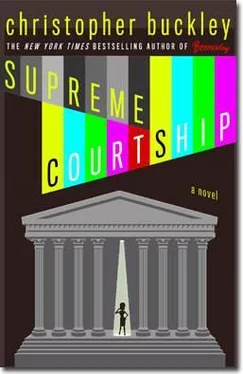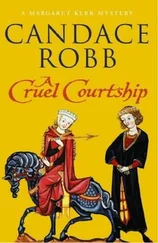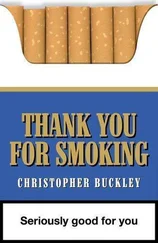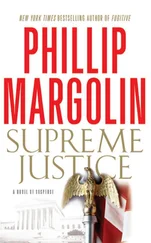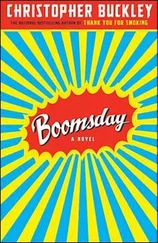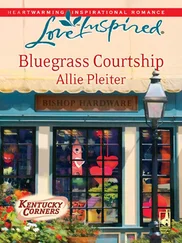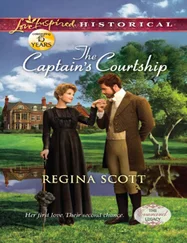A ripple of laughter went through the Great Hall: the sound of hundreds of buttock cheeks unclenching.
“Which argument do you find more compelling?” the Chief Justice asked.
“Ah, you lay an elegant trap for me,” Forkmorgan replied. “Both arguments are equally compelling, albeit admittedly distinct in terms of texture. Call it juridical dimity.”
Dimity? Pepper thought. What in hell is dimity? [32]
“It seems clear enough to me,” Justice Santamaria said in a gruff, enough-already tone, “that you’re putting most of your eggs in the Dillon v. Gloss basket. Or am I missing something here?”
“I doubt very much that you’ve ever missed anything, Justice Santamaria,” Forkmorgan said.
“I was being sardonic.”
Laughter.
“We cite Dillon for a very straightforward reason. There, the Court, construing the Eighteenth Amendment-Prohibition-found that the critical date was the date of ratification, not the date of certification by the Secretary of State. It goes without saying that certification takes place after any election. At the time, of course, the statute vested certification authority in the Secretary of State, rather than-as now-in the National Archivist.”
“Isn’t that a somewhat narrow interpretation?”
“Even if certification-and not ratification-were the key determinative moment,” Forkmorgan said, “the amendment was in effect prior to certification by the Vice President of the vote of the Electoral College. Thus the term limit amendment clearly prevented the President from being chosen by the Electoral College.”
“ ‘Clearly’ is the issue here. But nice try, Counselor.”
“You clearly see through me, Mr. Justice.” Forkmorgan smiled.
As the elegant swordplay proceeded, Pepper found her eyes wandering again, toward the back of the hall. A recognizable visage came into view: walrus mustache, a beef-jerky face beneath a pale forehead. Well, who let you in? The leathery face creased into a wink. Pepper turned back to the proceedings. Forkmorgan and Silvio were still going at it. She wanted to get a word in. The clock was ticking. Each side got twenty minutes to present its case. Then there would be five minutes each for rebuttal.
No one, perhaps, had grasped better than she the CJ’s admonition that the whole world would be watching.
Yards, furlongs, miles of print, on paper and online, had been expended on feverish speculation as to which way Justice Cartwright would swing in Mitchell v. Vanderdamp. Editorials and TV commentators demanded she recuse herself. How could she possibly be unbiased? She owed Vanderdamp her seat! Dexter Mitchell’s loathing of her was a universally known fact, despite his shameless tactical pretense of enthusiasm for her at the hearings. (His fellow committee members had amply ventilated their anger at him to the media.)
Listening to these demands that she walk away from the case, Pepper’s reaction was a (silent) reiteration of the comment in Swayle that had created so much bother: kiss my ass. This time, she would be careful not to hit the SEND button. After some three a.m. tossing and turning she had come to the conclusion that she was perfectly capable of rendering judgment. And that was that. It was one advantage to being a Supreme Justice: they could beller and holler as long as they wanted, but you didn’t have to explain or account for yourself. Meanwhile, the boys were still going at it.
“The operative words, Justice Gotbaum, are ‘when ratified by the Legislatures of three fourths of the several states,’ which indicates that ratification is the critical moment. Post-election certification by the Archivist is a ministerial act that has no legal significance.”
“I’m well aware of that, Mr. Forkmorgan. But under 18 USC 106b-to which you yourself allude on page twelve-the Congress has entrusted the Archivist with the final step necessary to complete enactment of the amendment. He or she must determine that the states have officially adopted the amendment. So it would seem to me that until he or she does so, the amendment is not effective.”
Pepper took a deep breath-no Latin, she warned herself-and leapt in.
“Mr. Forkmorgan, as I understand it, the Court held in 1939, in Coleman v. Miller, that the efficacy of ratifications by state legislatures is a political question left to political departments, not the courts. Doesn’t the rule of Coleman then apply here? Aren’t you, in effect, asking us to second-guess the congressional judgment reflected in the statute?” Whew…
“Not at all, Justice Cartwright, though I thank you for highlighting this very aspect. We dispute the notion that Dillon should be overturned in light of Coleman…”
Suddenly the Chief Justice interrupted the attorney in the middle of a string of citations. “Thank you, Mr. Forkmorgan. Mr. Clenndennynn?”
Graydon rose. The spectators stirred at the sight of the President’s attorney.
“You seem to put quite a bit of emphasis on Opinion of the Justices, 362 Mass. 907,” Hardwether began.
“Indeed, but no more than it is capable of sustaining, Mr. Chief Justice. It is a hardy opinion, I would say. But we also cite City of Duluth; State v. Kyle; Real v. People; and Torres v. State. At the risk of putting the Court to sleep.”
A ripple of laughter.
“Oh, no,” the Chief Justice smiled. “I’m wide awake.”
“If I may, Mr. Chief Justice,” Graydon said, slipping his right hand into his vest pocket, imparting a faint Churchillian aspect, “despite all our-I freely admit-rather busy citing, we are making, or trying to make, a simple and straightforward argument that to the extent there is ambiguity here, this amendment should not be deemed to apply to a sitting president. The Twenty-second Amendment was explicitly prospective. It didn’t bar President Truman from running for reelection in 1952. The people did. So the Twenty-second Amendment’s prospective reach can hardly be read as a background principle.”
A little purr of appreciation went through the Hall. Paige Plympton, always on the lookout for the high ground in any argument, asked the President’s attorney if the Framers had envisioned such a “conundrum as the one we seem to find ourselves in.” Graydon, hand still tucked in his vest pocket, arched an eyebrow in bemusement.
“Madame Justice Plympton, it has long been my impression, though I have never given voice to it publicly until now, that the Framers, had they known the procedural contortions and abominations to which their descendants would put their sublime efforts, might well have thrown up their hands in the air and begged the British to take us back.”
A wave of laughter went through the Great Hall. The old man was about to continue when he suddenly turned gray. His hand moved from his pocket to his chest. He stood, gasping. Pepper thought, Sweet Jesus. And then he fell forward.
News that the President’s attorney had collapsed during oral argument was received, in evangelical America, as a sign that the End of Days might, indeed, be at hand.
FIFTEEN MINUTES LATER, Pepper was in her chambers, stunned and teary-eyed. Crispus was keeping vigil with her at the TV set, handing her serial tissues. They watched.
Graydon Clenndennynn had been ambulanced to George Washington Hospital, where an enormity of media were now swarming. Almost all of the stand-up reporters were calling him “Mr. Clenndennynn,” as if in premonition of mortality. He was alive, but barely. Words crawled across the bottom of the screen:… PRESIDENT’S ATTORNEY SUFFERS ‘MASSIVE’ HEART ATTACK DURING SUPREME COURT ORAL ARGUMENT OVER DISPUTED ELECTION…
Declan was in his own chambers, manning a sort of command post, though it was anything but clear what its precise function was at this point, Court being-obviously-adjourned.
Читать дальше
